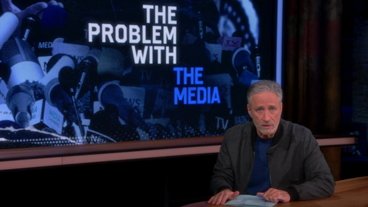Apple's ongoing efforts to bring a radio service to iPhone and iPad owners has apparently hit another snag, as negotiations with Sony have dragged on.
Licensing fees are once again holding up the arrival of Apple's rumored radio service, according to the Financial Times. Apple reportedly has already secured a deal with Universal Music, as was rumored in April, and is close to an agreement with Warner Music. Sony Music — the second-largest of the major record labels — is reportedly holding out for more lucrative concessions.
Some industry executives are said to believe that, due to Apple's massive financial reserves and the likelihood that it will make a considerable amount of money off the service, the company should pay out more money to the record labels for permission to stream their product.
Reportedly, Apple initially lowballed the record labels with an offer of 6.5 cents per 100 tracks streamed, roughly half what Internet radio service Pandora pays. The labels rejected that offer, leading to the first reports that the service would be delayed. Apple subsequently offered 12.5 cents per 100 tracks streamed, and the number of labels that have accepted that offer is unclear.
The debut of some sort of Apple-run music streaming service has been predicted since the arrival of iTunes some 10 years ago. Rumors picked up earlier this year when icons hidden inside iOS 6.1 showed "radio buy" buttons tucked into the update, indicating that a service was imminent.
The stalled service, according to reports, features not only music streaming and buying, but also the ability to predict which songs users will enjoy based on what they've listened to before.
Apple, reportedly, is offering the record labels a mix of compensation possibilities: a royalty per track streamed, a share of iRadio's advertising revenue, and a guaranteed minimum payment should the the previous two prove unsatisfactory.
 Kevin Bostic
Kevin Bostic








 Christine McKee
Christine McKee
 Malcolm Owen
Malcolm Owen

 Sponsored Content
Sponsored Content

 Amber Neely
Amber Neely











23 Comments
What about mac owners?
What about mac owners?
Well, we're not allowed to read iBooks, maybe we're not allowed to listen to iRadio either.
Please stop calling this "Radio," when it's actually just a streaming music service. It's not even "Internet Radio," it's just a streaming music service. "Radio" kind of implies thousands of stations, the ability to choose between stations, and curated content of various kinds on those stations. This new streaming service is not likely to have any of those things.
The record companies are run by the stupidest, greediest people on the planet. If it weren't for Apple and iTunes, at least half of them would be looking for jobs right now.
They want Apple to pay more (than Pandora) because "Apple has more money". Ignoring the fact that that's a ridiculous negotiating position, it's crazy to see them digging in their heels on this since this service will almost certainly allow users to buy, through iTunes, the songs they are listening to, increasing revenues for the labels by that much more. The service is essentially free advertising for them, just like radio always has been.
[quote name="Gazoobee" url="/t/157453/iradio-stalled-again-as-apple-sony-cant-agree-to-royalty-terms#post_2324661"]Please stop calling this "Radio," when it's actually just a streaming music service. It's not even "Internet Radio," it's just a streaming music service. "Radio" kind of implies thousands of stations, the ability to choose between stations, and curated content of various kinds on those stations. This new streaming service is not likely to have any of those things.[/quote] Don't get so anal. Radio is something we listen to & when I'm listening to one station, not using any others, I'm still listening to the radio. It's a figure of speech.